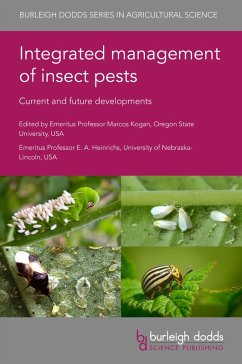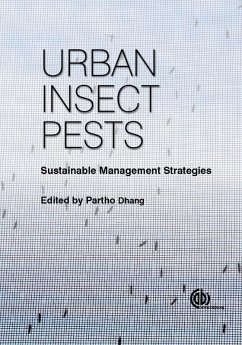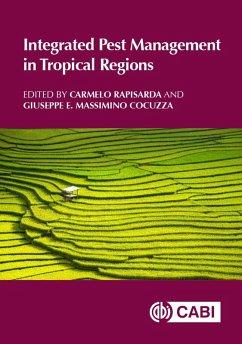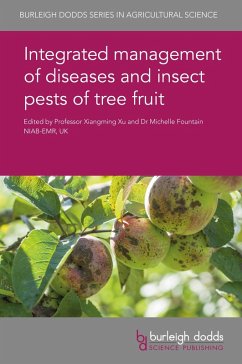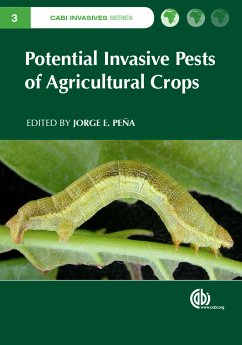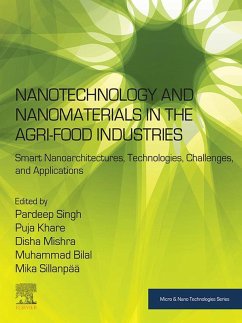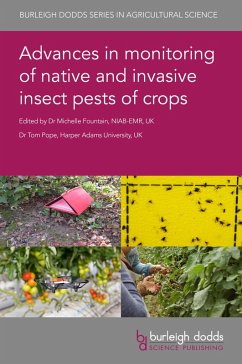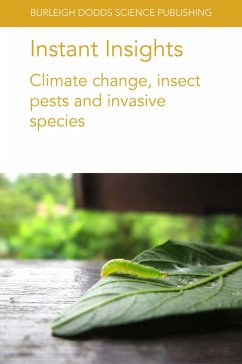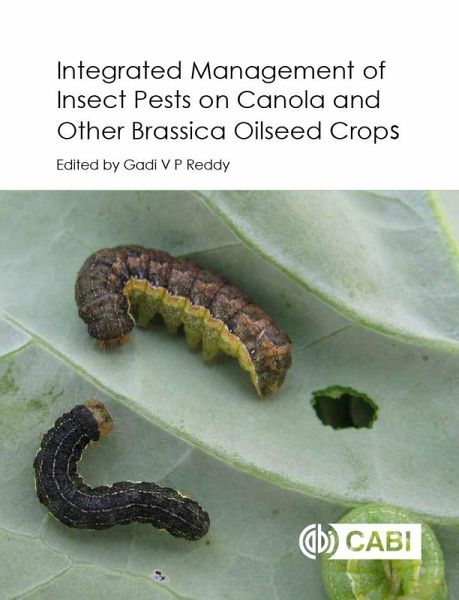
Integrated management of Insect Pests on Canola and other Brassica Oilseed Crops (eBook, ePUB)
Versandkostenfrei!
Sofort per Download lieferbar
239,95 €
inkl. MwSt.
Weitere Ausgaben:

PAYBACK Punkte
120 °P sammeln!
This book comprehensively reviews current pest management practices and explores novel integrated pest management strategies in Brassica oilseed crops. It is essential reading for pest management practitioners and researchers working on pest management in canola and other Brassica crops worldwide. Canola, mustard, camelina and crambe are the most important oilseed crops in the world. Canola is the second largest oilseed crop in the world providing 13% of the world's supply. Seeds of these species commonly contain 40% or more oil and produce meals with 35 to 40% protein. However, its production...
This book comprehensively reviews current pest management practices and explores novel integrated pest management strategies in Brassica oilseed crops. It is essential reading for pest management practitioners and researchers working on pest management in canola and other Brassica crops worldwide. Canola, mustard, camelina and crambe are the most important oilseed crops in the world. Canola is the second largest oilseed crop in the world providing 13% of the world's supply. Seeds of these species commonly contain 40% or more oil and produce meals with 35 to 40% protein. However, its production has declined significantly in recent years due to insect pest problems. The canola pest complexes are responsible for high insecticide applications on canola. Many growers rely on calendar-based spraying schedules for insecticide applications. The diamondback moth Plutella xylostella and flea beetles Phyllotreta spp. (P. cruciferae and P. striolata)cause serious damage to canola. In the Northern Great Plains, USA, for instance, P. xylostella is now recorded everywhere that canola is grown. Severe damage to canola plants can be caused by overwintering populations of flea beetles feeding on newly emerged seedlings. Cabbage seed pod weevil (Ceutorhynchus obstrictus), swede midge (Contarinia nasturtii), and tarnished plant bug (Lygus lineolaris) are also severe pests on canola. Minor pests include aphids (cabbage aphid, Brevicoryne brassicae and turnip aphid, Hyadaphis erysimi) and grasshopper, Melanoplus sanguinipes. This book: · is the only single compiled source of information on integrated management of canola and other Brassica oilseed pests · presents the biology and management of all the major and minor pests of Brassica oilseed crops · is an essential source of information for applied entomologists, crop protection researchers, extension agents and stakeholders
Dieser Download kann aus rechtlichen Gründen nur mit Rechnungsadresse in A, D ausgeliefert werden.





